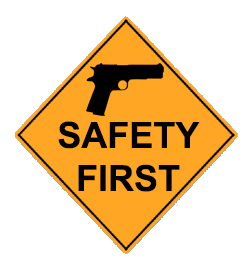Courses

Please email below if you are interested in taking a course or would like more information
CANADIAN FIREARMS SAFETY COURSE (CFSC) – PAL COURSE
The Canadian Firearms Safety Course (CFSC) was developed in partnership with the provinces and territories, national organizations with an ongoing interest in firearms safety, and many firearms and hunter education course instructors from across Canada. This course was developed to meet the mandatory requirements of section 7 of the Firearms Act. The legislation stipulates that individuals wishing to acquire non-restricted firearms must take the CFSC and pass the tests.
Topics covered in the CFSC include:
- the evolution of firearms, major parts, types and actions;
- basic firearms safety practices;
- ammunition;
- operating firearm actions;
- safe handling and carry procedures;
- firing techniques and procedures;
- care of non-restricted firearms;
- responsibilities of the firearms owner/user; and
- safe storage, display, transportation and handling of non-restricted firearms.
CANADIAN RESTRICTED FIREARMS SAFETY COURSE (CRFSC) – RPAL COURSE
In accordance with the Firearms Act, a new firearms safety course focusing on restricted firearms (primarily handguns) was developed and implemented on February 1, 1999. The legislation stipulates that individuals wishing to acquire restricted and/or prohibited firearms must take the Canadian Firearms Safety Course (CFSC) and the Canadian Restricted Firearms Safety Course (CRFSC) and pass the tests.
Topics covered in the CRFSC include:
- the evolution of firearms, major parts, types and actions;
- basic firearms safety practices;
- ammunition;
- operating handgun actions;
- firing techniques and procedures for handguns;
- care of restricted firearms;
- responsibilities of the firearms owner/user; and
- safe storage, display, transportation and handling of restricted firearms
Hunter Safety Course
Hunting is an ancient tradition and an integral part of our cultural heritage. The ancestors of today’s human populations ensured our survival by hunting for food and clothing.
Today hunting is still an important activity for millions of people around the world. For many, it is still an important method of food gathering. For others, hunting is a recreational activity that provides an opportunity to further friendships and camaraderie, an opportunity to experience nature and relax in the outdoors and to make an important contribution to conservation.
Responsible hunters support the many rules that have been established to ensure that our wildlife populations are sustained and that hunting remains a safe activity.
The Ontario Hunter Education Program is administered by the Ontario Federation of Anglers and Hunters in partnership with the Ontario Ministry of Natural Resources and Forestry.
In 1960, Ontario became the first Canadian province to establish a mandatory Hunter Education course that included training on safe and responsible hunting.
The Ontario Hunter Education Program will assist you to understand the natural world and become a knowledgeable and responsible hunter. The program provides introduction information about:
- ecosystems and wildlife management
- hunting laws and regulations
- hunter responsibilities
- identification, biology, management of and hunting techniques for big game, small game and waterfowl.
- hunting and survival equipment
- the hunter’s role in society.
The program also reinforces the firearms safety information contained in the Canadian Firearms Safety Course.
New hunters of all ages must take hunter education training and pass an exam before they can purchase their first hunting licence.
More than one million individuals have successfully completed hunter education training.
